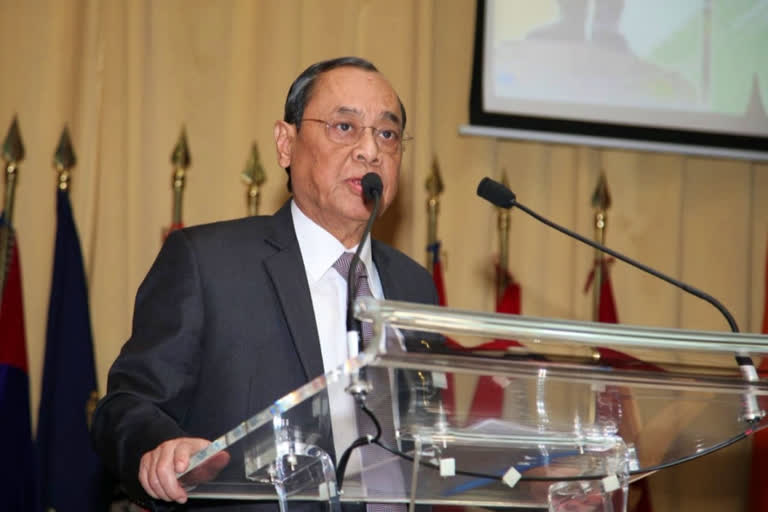New Delhi:Former Chief Justice of India (CJI) Ranjan Gogoi in his autobiography said that the sexual harassment allegations against him was an attempt to jeopardise the functioning of the CJI by certain known quarters and the hearing before the Supreme Court concerning it was extremely short and was in fact no hearing at all.
The former CJI was criticized for being part of a special bench set up to hear a suo motu case titled In Re: Matter of Great Public Importance Touching upon the Independence of the Judiciary on a Saturday on April 20, 2019.
Speaking at the launch of his autobiography, 'Justice for the Judge', Justice Gogoi on Wednesday said that he should not have been part of the bench to hear the case saying, We all make mistakes and there was no harm in accepting it.
In hindsight, I should not have been a judge on the bench (which heard alleged sexual harassment case against him). 45 years of my hard work in bar and bench was being spoiled. It might have been better If I was not part of the bench. We all make mistakes. No harm in accepting it said the former CJI, who is now a Rajya Sabha MP.
In 2019, a former Supreme Court staffer had accused him of sexually harassing her, and pursuant to her allegations, the Supreme Court took a suo motu cognisance and a three-judge bench headed by Justice Gogoi was constituted.
He was later given a clean chit by an in-house committee of three judges headed by Justice S A Bobde. Other members of the committee were two women judges -- Justices Indu Malhotra and Indira Banerjee.
Also read:Supreme Court refuses to disclose probe report against ex-CJI Ranjan Gogoi
In the autobiography, the former CJI writes about the sexual harassment allegations and says when they came to light, the bench convened a special sitting, but, despite his presence on the bench, he refused to sign the order.
This unscheduled hearing on Saturday, which has been much talked about, was extremely short. In fact, there was no hearing at all. I expressed my indignation at the allegations and maintained that it was an attempt by certain unknown quarters to jeopardize the functioning of the CJI. At the end of the hearing, a very innocuous order was passed, he writes in the autobiography.
